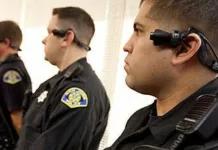What is a Police Report?
People file a police report with law enforcement for various reasons. For example, domestic disputes, traffic accidents, burglaries, home invasions, fraud, theft, stalking, violence, and other reasons. To file a report, citizens usually call 911 or their local police department’s non-emergency line to report the incident.
Once a citizen reports an incident, dispatchers assign it to local officers in the area. The police officers travel to the appropriate location via car, motorcycle, or other police vehicles. Then, the officers evaluate the situation, make observations, interview witnesses, record data, and complete forms and reports required by their local police department.
Police officers also initiate the filing of a report to record the data and gather the details associated with criminal and civil incidents such as car accidents, burglaries, assaults, and robberies, to name a few.
Officers gather and record a lot of information and data in a police report. This helps ensure thorough and accurate investigations and supports criminal proceedings if necessary. Background verification services may also use them in background checks. The information contained in the typical police report may vary from county to county, but most capture very similar information.
What type of information and data is contained in a police report?
The following are types of data and information that may be included. Please note that there is no universal police report. Information will vary from department to department.
- Identifying information for all parties involved in the incident, including full name, address, phone number, date of birth, social security numbers, driver’s license numbers
- Date of the occurrence or incident
- Location of the event or incident
- The officer’s name and ID number (sometimes referred to as badge number)
- The names of other officers who were present
- Diagrams or drawings of the scene
- The names of witnesses and their statements
- Reference number (if available)
The law enforcement case file may also contain motor vehicle information, specific details of the incident, and any evidence associated with the case.
Examples of police reports may include but are not limited to domestic disputes, traffic accidents, thefts, fraud, assault, burglaries, and stalking incidents. Other information that may be available includes crime surveys, crime statistics, calls for service, weather information, and traffic accident surveys.
Are Police Reports Public Records?
Many types of police records are exempt from public disclosure and are not public records. There are two main reasons why they aren’t publicly available. First, disclosing the information could undermine an ongoing investigation. Second, it could jeopardize someone’s privacy and safety. In some cases, departments will release specific information related to the report, such as to a reporter doing a story. However, they rarely release a full copy.
If you’d like to get access to billions of public records, we recommend BeenVerified. They provide easy online access to background reports, address and phone reports, associated persons, and more.
How to Get a Police Report
By law, certain police records and violation reports prepared and maintained by the Police Department are accessible to the general public.
If you need to get a copy of a police report, follow these steps: First, research the requirements of the police department responsible for the incident’s jurisdiction. Then, follow the department’s protocol for requesting and receiving those records. Start by checking the police department’s website. If you don’t find anything on the police department’s website, expand your search to the city website.
Obtain and Fill Out Request Forms
Some departments may require that you complete a request form, sometimes called a request for public records. This may also be known as a request for open records. When you check the department website, see if you can download the request form from their site. If so, complete the request form and submit it according to the directions.
Most request forms will require you to provide the first and last names of at least one of the involved parties. In addition, in some cases, you’ll need the incident’s location, date, time, and the incident or case number.
Submitting the Request Form
You must email the form, send it via regular mail, or submit it in person. A valid ID and payment of a nominal processing fee are usually required to obtain copies of the document. The originating agency may also require that you sign a written disclaimer stating the information in the document will not be used for solicitation purposes.
Important Notes Regarding Submitting Requests for Police Reports
- It may take a few days or more to obtain the official documents
- Charges for obtaining copies of the documents may vary by city or jurisdiction
- Very few departments allow access to records online
Access to these records varies greatly from one jurisdiction to another. In some areas, the information may be relatively easy to obtain. In other areas, the information may only be accessible to the parties involved in the incident or their agent (such as a lawyer).
It is also possible that the record of a specific incident is available, but the personally identifying information is hidden.
Freedom of Information Act Requests
The Reporters Committee for Freedom of the Press created a helpful website that helps users create, send, maintain, and share Freedom of Information requests. Registered users can submit requests at the federal and state level. Visit the IFOIA website for more information.
LexisNexis
In addition, LexisNexis provides a nationwide search for accident reports. Just visit the site and complete the online form. You’ll need to provide the state, jurisdiction, and one of the following:
- Report Number
- Last Name and Date of Incident
- Last Name and Street
Access to Crime Data and Statistics
Some jurisdictions have regionalized their crime information into a joint database. Such information systems allow citizens to research crime statistics, view detailed crime maps, see who is in jail, search for arrest warrants, and retrieve information about sex offenders living or working in a given area. Much of this information is readily available via the Internet.
How to find police reports and arrest records across multiple jurisdictions
Conducting your investigation can become complicated if you need to do a background search on someone who has lived in multiple jurisdictions. To simplify things, an internet-based specialized investigation company can provide a comprehensive, multi-state search in one easy step. This allows you to search for multiple records from all over the country quickly and easily. And you can avoid the hassle of searching for individual records from government entities.
BeenVerified has an online search form for public records. BeenVerified’s automated search aggregates from hundreds of databases and repositories. To search, go to the online search form and enter the person’s first name, last name, and city. The form will search multiple public records databases and list potential matching names. Scroll through the list, select the person you’re searching for, then click Build Report.
Questions and More Information
If you have any questions about how to get a copy of your police report, please leave a comment below. You can also view more Law Enforcement Resources.









If there was a report made nobody went to jail but do they report it to the apartment ownership
I was told by local police I could not obtain a copy of the report because I didnt call the police. My wife called on me. She threatened me with a pair of scissors, admitted it to police, and had them in her purse. The officer said I couldnt file charges mbecause she didnt stab me. DO U BELIEVE THAT.
They do have a form online but the secratary that looked it up said I coulndt get a copy. Can they refuse if I am a party?
Same thing with me..they won’t give me a copy of my domestic assault case
I made a police report. There are false reports out there that are ripping my family apart. It’s still an on going investigation. All I want is a copy of my report in my words, nothing else. But I’m being told I can’t have a copy because the case is still open. Is this right? I’m not asking for anything other than a copy of the statement that I gave the police so I can clear things up with my family.
How can the victim of an assault with a deadly weapon (3 pound sledgehammer) get the police records of the incident when the police don’t want to release it because of personal interest( vary small town) as it wasn’t handled right. There were witnesses of the assault and it was two against one. They almost killed me ; 17 staples to the back of my head and 14 stitches to the front of my face my upper nose was crushed. I had a fractured skull with blood behind my eardrums. The police only charged them with harrassment???? This happened in 2006 in corry Pennsylvania after witch I moved back to my home town, until 2017 when I moved back to corry Pa with my two young boys and shortly there after married a woman from the town. The police have been all over me since I’ve moved back here its absolutely ridiculous the way they’ve conducted there behavior! I’m honestly sick of being stalked, harassed, and constantly intimidated by them absolutely everytime I go for so much as just a walk in the park or around the block I see them numerous times often they’ll pull into a parking lot and just sit there pointing at me long enough so I obvious take note of there existence. I admit I raised a little hell in my day and delt with addiction issues in the past but that’s been years and years ago!!! The last thing I want to do is ask them for records when I truly believe they’d kill me in cold blood if they could get away with it. What can I do? Obviously there is some stuff I’m leaving out as well. but either way what I’ve said is fact and I’d take a lie detector test anytime! I’m honestly afraid of them, what if anything can I do to get the records?
Specifics per your city:
Right-To-Know Law
The City of Corry will respond to all record requests made pursuant to the Pennsylvania Right-to-Know Law, enacted February 14, 2008 (P.L. 6, 14 No. 3), 65 P.S. § 67.101 et seq., effective January 1, 2009.
Filing a Request
Record requests must be made in writing or by e-mail and must be delivered to the City of Corry Open Records Officer in person, by U.S. mail, by facsimile or by e-mail as set forth below. Request forms are available to download below.
City of Corry Open Records Officer
Samantha Vollentine
100 S Center St
Corry PA 16407
Phone: 814-663-7041
Fax: 814-664-4912
svollentine@corrypa.gov
https://www.corrypa.org/sites/default/files/docs_forms_media/rtkrequestform-1.pdf
https://www.corrypa.org/sites/default/files/city-of-corry-public-records-policy.pdf
General information for any citizen:
Did You Know? Because of the Freedom of Information Act, if you want to get a copy of your police report, you can just visit your local police station to obtain it. Your lawyer or insurance agent may also be able to get a report on your behalf. However, anyone else who wants that report would have to have a legally valid reason. https://www.wikihow.com/Obtain-a-Police-Report
Potential information for your specific situation:
*FIGHTING POLICE ABUSE: A COMMUNITY ACTION MANUAL: https://www.aclu.org/other/fighting-police-abuse-community-action-manual
I am gathering police reports and court dockets on myself for a background check, the agency that requires these from me does none of the document gatherings, but requires the person whose background check is under review to do it. All agencies (Police Departments and Courts) have been great, except one. They will not release the full Police report on my own arrest to me, and they won’t even really say why, nor give me a request form to fill out nor procedure to go through. They say the agency who wants me to get the report for my background check review has to request it, so each side it telling me mutually exclusive things. Any ideas for what I can do? The case is not open or pending, I already have the court docket that says I completed everything.
After a case is closed, why is it still difficult to get records of a public complaint of a police officer? thanks
Hi Marcus,
Depending on the State, the complaint may or may nor be public. Many states have statutes that list police investigations as confidential, not public, so they don’t fall under public record release. Similarly, Federal law lists their investigations as private, and a lot of case has supported that the privacy of people involved in those matters must be protected, as many people don’t want their private business aired for everyone to read. Some people refer to this as the “nosy neighbor” rule, which stops nosy people, who were not involved in the police matter, from being able to freely obtain it without a release from an involved party.
I was stopped by Maryland police on an annoumous caller stating I was a possible DUI, a sobriety test cleared me in that accusation, but police took my 8 year old grand-daughter from my vehicle by force, put me in handcuffs, and made a non-probable cause arrest. I never saw my grand-daughter again. I was cleared from all charges, bu8t there is no evidence or mention in the police report concerning my grand-daughter. Where can I find out this information? I believe my ex-daughter-in-law made a false report to police leading them to believe it was a kidnapping. How can I find out?
I was told by YOLO county that I can not obtain a copy of my police report because someone in my vehicle was arrested. Can they do that?and why how? I’m frustrated because I was illegally searched and sexually harrassed by the police officer.
I think your best course of action is to contact a local attorney. They can advise you if you are legally entitled to get a copy of the police report. And they can advise whether or not you have a case regarding an illegal and inappropriate search.
Of course you’re right, but for many, many people you might as well advise, “Don’t feed your two children this week, and forget about paying the electric bill this month, so you can get an attorney to advise you but maybe not help you at all. Then go home to your dark home (if you still have it) and listen to the babies cry.”
I’m been targeted with a false accusation criminal complaint to the PA State Police. The detective interviewed me and the DA chose not file charges. Now I need to get a copy of the police report so that I can see the false accusations and file a counter-criminal complaint about the false accusations but the clerk of courts will not let me do that because I have not been charged and have no docket number. I’ve been told by both the court and the State Police Commissioner’s office that I cannot get a copy of the police report on me. Please advise if this IS possible and how. Thanks
The rules for releasing the report will vary by jurisdiction and by situation. So, this is a question that is best answered by an attorney. Since you plan to file a counter suit anyway, discuss the matter with an attorney and have them request a copy of the report. Unless releasing the report is somehow exempted by law in your jurisdiction, they are much more likely to release it to an attorney who is representing you.
I want to get police report on my car accident.
Hi, my details and information the Police held about me was obtained by the Social Service. Is this possible for the Police to share such information with other organisations without my consent?
In most cases, yes, the police department can share the information with Social Services. Under the federal Freedom of Information Act (FOIA) and public records laws in all states, anyone can request information from a local police department.
If my adult friend dies in their parents’ home while visiting, and I think there’s foul play going on, can I get the autopsy or police report? GBI came and took the body because the friend’s dad is a no longer practicing doctor and my friend HAD a past history with substance abuse but he had been clean for many years so I thought.
my father’s homicide report is still open after 46 years. The killers are now deceased and were never prosecuted for the crime. The main person who had his possessions died a week later and the other one dies ten years ago. the police won’t close the case and won’t let the family view the reports. They say its closed but not closed. How can we get them to close the report or give us a copy of it to bring closure to the family/
If you are the victim are you able to obtain a police report even if the case is open? The response i received from the police dept was they were not able to provide a report because the case is still open. Also, one of the suspects came to the police dept and even admitted to the crime (according to the detective) but they did not retain them at the police dept.
If you are the victim, the police department that completed the report is required to make a copy available to you. However, it is difficult to say exactly when they will provide the report to you. If you are not the specific victim, and you are only mentioned in the report, then they will only provide a copy when the case is closed.
My car was stolen…they caught the guy and arrested him. Can I obtain a report of his arrest?
You said if you’re the victim they are required to provide a police report?..can someone tell the Hoover police dept in Hoover Al that because I’ve been trying to get copies of 3 reports I made regarding online harassment, and threats of violence as well as someone impersonating me online. They never investigated it and I have them admitting they never investigated it so it’s not open yet they are telling me I have to subpoena my own report and despite me
Having been asking for it since last year they said it could have been erased(because they for some reason used a body cam to video my complaints and said they made no paper supplemental report. I recorded every conversation I had with the police in regards to trying to obtain the reports and their flat out refusals. Including a deputy administrator denying me access to speak to the chief of police , and telling me I watched too much television, when I asked for a copy of the policy that stated all reports must be obtained by subpoena even when you’re the victim. So what do I sue them under it’s not freedom of information because I AM THE VICTIM. Because Alabama has some jacked rules on body cam footage which I am afraid they will hide behind. Also DO NOT TELL ME TO GET AN ATTORNEY….I don’t even know why you have this site if that’s your answer because I’ll tell you what the defense attorneys down here are NOT in the business of ruffling the police feathers in any way…and will railroad clients to take pleas even when they’re innocent. Which is one reason I need the reports for a civil rights violations by the county a several judicial employees operating under a unconstitutional no action for people under a protection order that denies the subject of the order from filing reports of theft old property, with confession, harassment, stalking and terrorizing on the person who took the order out. Basically giving them free reign to break any law against the person they put on the order ….also they require no evidence what so ever for someone to take one out …just a story and this is verified by a deputy who voiced his concern and unfairness opinion on that practice as well. I was also given that same directive of getting an attorney by the clerk in Shelby county who also told me it was required that I have one to sue in circuit court which violates my access to the courts based on a lie. So if you have any other advice it would be great otherwise you’re just a site that plugs attorneys who are probably bigger dirtbags than the one I am hand delivering a 15 page rules of ethics with each rule he violated highlighted and how he violated it and evidence to back up my claims to the Alabama state bar next week. And if he doesn’t get disbarred then there is something ROTTEN in this state and I’m going to do everything in my power to expose it.
When requesting records, you’re always asked for the reasoning behind making the request. What are some of the common reasons used in making requests? I don’t know what to say for my reason other than, I just want to know what happened that led to a specific individual being imprisoned.
Why a person who is involved in accident , must pay tax and reqest report and wait for it for 6 weeks?
Is it not correct everyone involved in a accident to receive a copy of the record without applying for one?
I am trying to get a copy of the police report on by sons death and they will not give me a copy I was his next of kin I was told I could not have a copy so how do I go about getting one they have gave me a run around now for 3 years
Did the department give you a reason? Is the case still open? In some cases, law enforcement will refuse to release a report if doing so will impede the completion of an investigation, or if it might endanger a witness. Check to see if your state has an official public records act that specifies who can get a copy of a report and under what circumstances. You may also consider hiring an attorney to subpoena the report.
I’m having the same issue with my brother’s death. We have a case # but they are saying there is no report or PD is referring us to sheriff who was not the responding agency…PD was. Wouldnt they be required to file a report on a death? What’s the purpose of a case # then?
Yes I was caught once overlimit catch of strips bass and they abandon me from fishing and I don’t get why they charge me with conspiracy to commit I felt like I was set up how can I get a copy of report y they would investigate on me and if some one set me up
What if you are the victim of stabbing and are denied report, even though it was never sent to the prosecuting attorney for action?
Victims of crimes have a legal right to a police report pertaining to their incident. A copy of ht report should have been provided to you when you filed. If not, you should be able to contact the appropriate police department to obtain a copy. Contact them and find out what their request procedures are.
how can i get my police report ?????
I need to know where can I go ??? can someone tell me please this police report was like 6 years ago
Is it called a police report when someone is killed by the police? Or is it an incident report? I’m not the next of kin, ie, the wife, but I’m an immediate family member. Am I entitled to get the report?
I need the police report case number, just the number from where I was the victim. All I got is the address my name and I don’t remember the date
You might want to check with the Department that responded. They can usually run a search based on your name and address. Also if you know the place of the incident to which they responded is usually a big help, too.
what information do i need to get reports? just a name? or do i need to know an approximate date? also can i get info about an incident where no one went to jail or had any court dats from the incident?